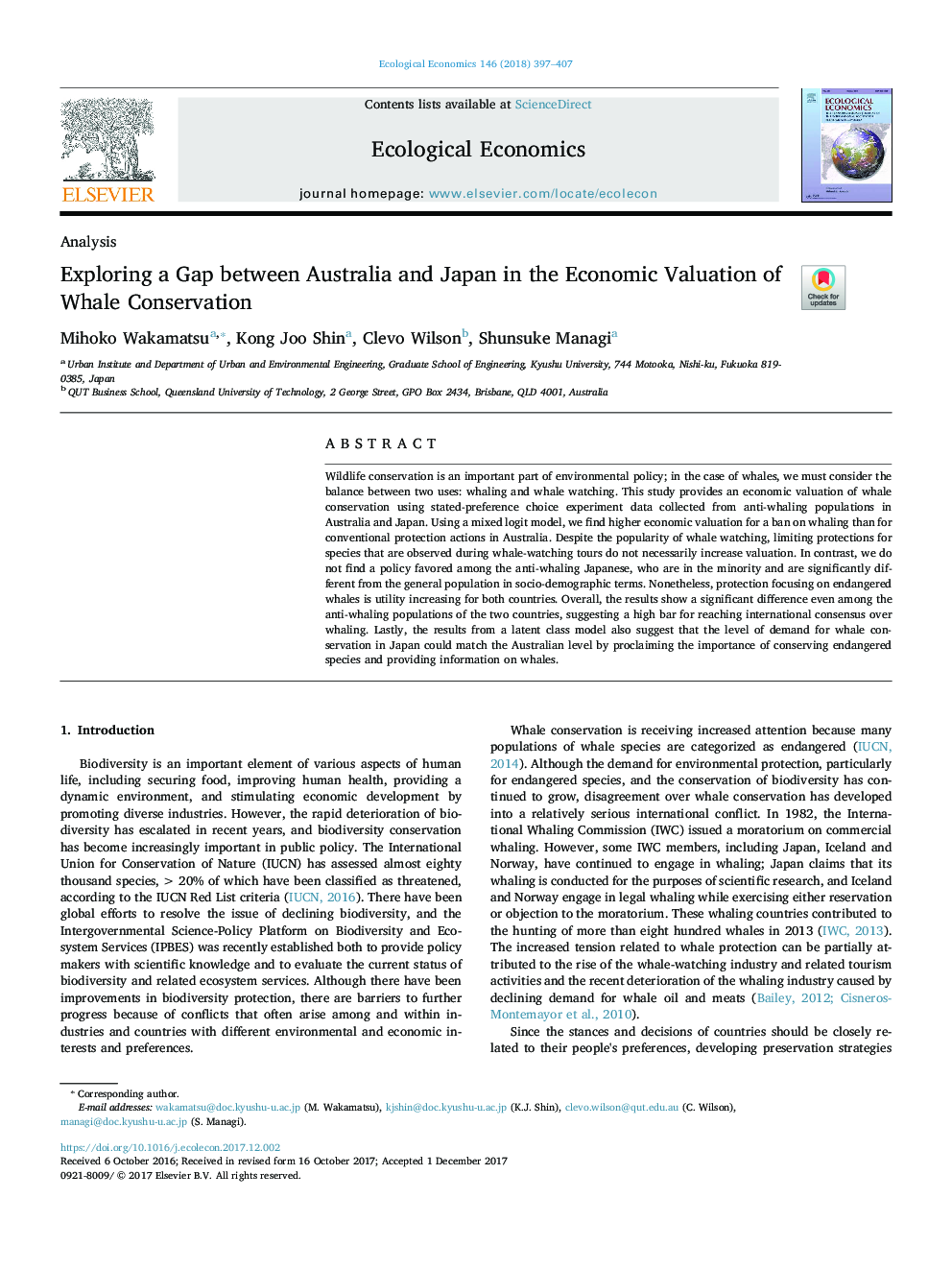| Article ID | Journal | Published Year | Pages | File Type |
|---|---|---|---|---|
| 7344602 | Ecological Economics | 2018 | 11 Pages |
Abstract
Wildlife conservation is an important part of environmental policy; in the case of whales, we must consider the balance between two uses: whaling and whale watching. This study provides an economic valuation of whale conservation using stated-preference choice experiment data collected from anti-whaling populations in Australia and Japan. Using a mixed logit model, we find higher economic valuation for a ban on whaling than for conventional protection actions in Australia. Despite the popularity of whale watching, limiting protections for species that are observed during whale-watching tours do not necessarily increase valuation. In contrast, we do not find a policy favored among the anti-whaling Japanese, who are in the minority and are significantly different from the general population in socio-demographic terms. Nonetheless, protection focusing on endangered whales is utility increasing for both countries. Overall, the results show a significant difference even among the anti-whaling populations of the two countries, suggesting a high bar for reaching international consensus over whaling. Lastly, the results from a latent class model also suggest that the level of demand for whale conservation in Japan could match the Australian level by proclaiming the importance of conserving endangered species and providing information on whales.
Related Topics
Life Sciences
Agricultural and Biological Sciences
Ecology, Evolution, Behavior and Systematics
Authors
Mihoko Wakamatsu, Kong Joo Shin, Clevo Wilson, Shunsuke Managi,
